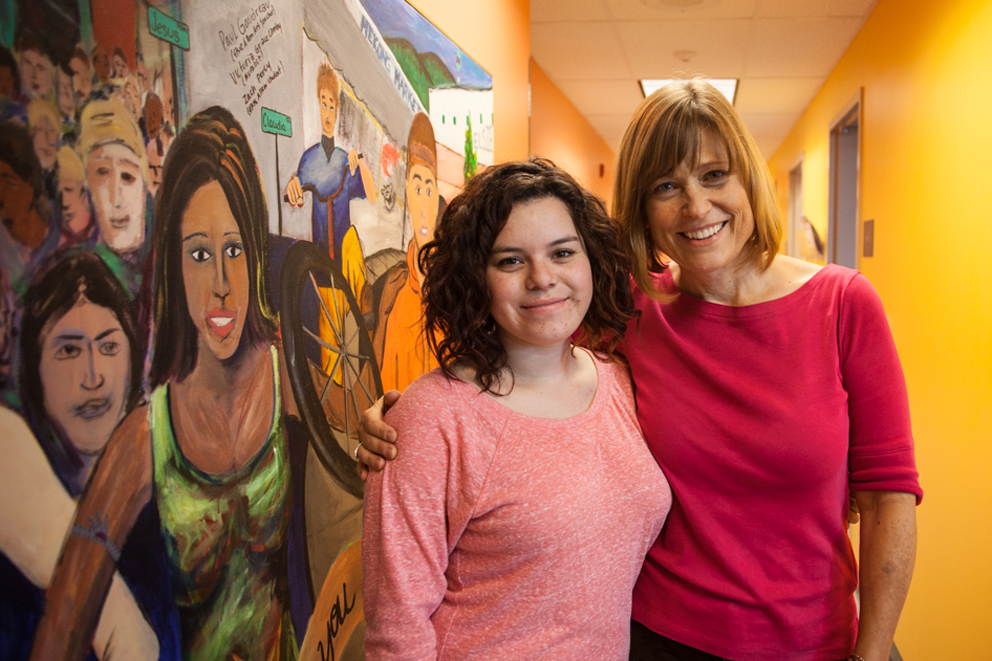
Life has been incredibly tough for many of the teenagers at Elsie Allen High School in Santa Rosa.
Screening surveys found that about half of students who have sought help at the health center on campus have significant histories of trauma.
They’ve faced serious issues including physical or sexual abuse, domestic violence, parents who are addicted or incarcerated, traumatic experiences with immigration, unstable living situations, or homelessness.
Kaiser Permanente Northern California recently awarded Santa Rosa Community Health, the nonprofit that runs the health center, $98,000 to support counseling services that address the impact of trauma on at-risk youth at the school and in the surrounding community. The health center is open to all teens in Santa Rosa.
“If we can help these kids now, we can change the trajectory of their lives and help them live to their fullest potential,” said Erin Moilanen, a family nurse practitioner and clinic lead at the health center. “We can help prevent teen pregnancy, chronic disease later in life, and even help keep them out of prison. Research shows that all these negative things are connected to trauma in childhood.”
Improving Access to Mental Health Programs
The grant to Santa Rosa Community Health is part of a package of $1,755,000 in funding from Kaiser Permanente Northern California to 18 community-based organizations. The organizations expect to reach nearly 3,700 students and school employees at 21 public middle and high schools across Northern California. All of the schools being served are in high-need communities where 50 percent or more of students qualify for free or reduced-priced lunch programs.
The investments are part of Kaiser Permanente’s ongoing commitment to improve access to mental health programs in the community, advance school-based wellness, and promote resilience. They are aimed at expanding mental health services and trainings that recognize and address the impact of trauma on students, teachers, and other school staff. The goal is to help young people and members of the community live healthier lives.
“Research confirms that trauma not only impacts the long-term and short-term health of individuals, but the ripple effect is evident in communities that are at greater risk for violence, poverty, and chronic illness.” said Yener Balan, MD, FAPA, executive director of Behavioral Health for Kaiser Permanente Northern California. “So, these grants could potentially have a positive impact on more than 20,000 people.”
Helping Both Students and Staff
The grants will also fund training to help schools develop a culture that recognizes the impact of trauma and wellness programs to help teachers, counselors, and other school staff who may be stressed by their work with students who have experienced trauma.
At the health center on the Elsie Allen High School campus, Erin Moilanen emphasized that staff support is essential.
“The teachers and staff see our students every day, and they’re often dealing with difficult behaviors that are a result of trauma,” she said. “They need guidance and an understanding to help the kids, and support to take care of themselves.”
Over the past 4 years, Kaiser Permanente Northern California has provided more than $3.2 million in grants to help increase trauma screening, augment mental health and support services for youth, expand and strengthen medical and social service referral systems, and increase understanding among the public health community about the signs and symptoms of trauma.
Denice Alexander, communications manager for External and Community Affairs, contributed to this article.




